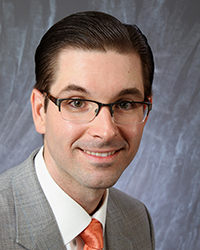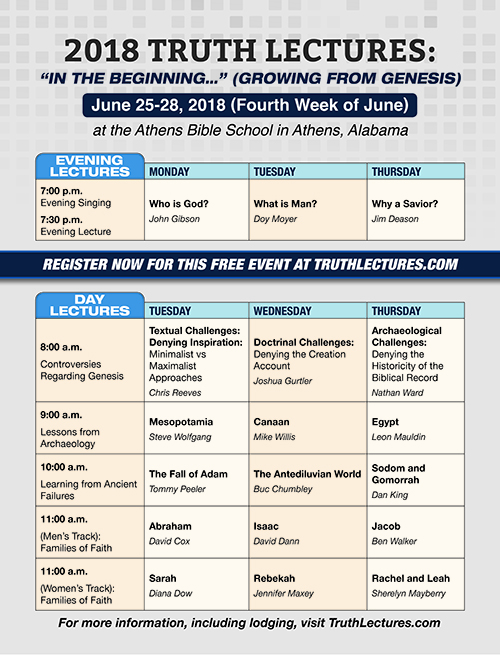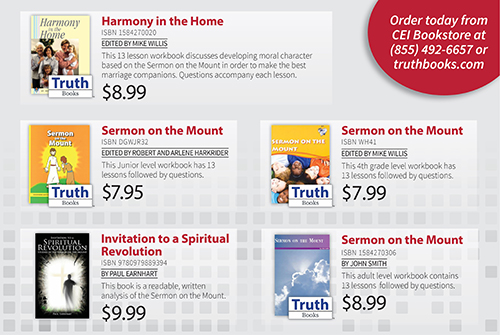

by David Flatt
Synopsis: Jesus proclaimed a surprising prerequisite for entrance to the kingdom of heaven: our righteousness must exceed that of the scribes and Pharisees. What relevance can be found in this ancient warning?
For I say unto you, That except your righteousness shall exceed the righteousness of the scribes and Pharisees, ye shall in no case enter into the kingdom of heaven (Matt. 5:20, KJV).
The Pharisees were a notorious religious sect in the New Testament. They were dead set on ruining Jesus. Viewing Him as a political threat, they continually tried to discredit, humiliate, and outwit Jesus. No doubt, they had been spreading the false allegation that He was attempting to destroy the law (Matt. 5:17).
The Pharisees were one of many Jewish sects which emerged during the time between the close of the writing of the Old Testament and the birth of Jesus. They originated in response to the pervasive influence of Hellenism within Israel (ca. 280-198 BC)—a time of religious anarchy among the Jews when the Law of Moses was not read or kept, and there was an absence of spiritual leadership in the Levitical priesthood.
The Pharisees began with an admirable goal. As their name indicates, they wanted to separate Israel from an ungodly culture, seeking to accomplish this end by reinstating the Law of Moses. By calling Israel to repent of their sins and commanding them to keep the Law of Moses, they were doing God's work. However, the Pharisees eventually strayed from these goals, becoming a political/religious institution focused on self-preservation.
They claimed to have authority in interpreting the law. As is typical of governing religious bodies, their interpretations were recorded and viewed as binding. These rulings, opinions, and traditions became known as the Talmud, Mishna, and Midrash. Complying with Pharisaical interpretations of the Law of Moses became more important than following the actual Law of Moses. Jesus condemned the enforcement of such man-made traditions over the actual commands of God (Mark 7:1-16).
Their desire for self-preservation led to corruption, hypocrisy, and self-righteousness. The righteousness of the Pharisees was one of self-exaltation based on works. A clear example of this is found in Jesus' parable of the Pharisee and tax collector (Luke 18:9-14). The Pharisee prayed, "God, I thank thee, that I am not as other men are, extortioners, unjust, adulterers, or even as this publican. I fast twice in the week, I give tithes of all that I possess" (Luke 18:11-12). The Pharisees thought God accepted them due to their knowledge and practices. They thought they were better than everyone else. They certainly did not view themselves as sinners in need of God's grace.
The irony of what this Pharisee asserts in Jesus' parable is that the claim was untrue. From this point in the sermon and continuing through Matthew 6:18, Jesus identifies specific corruptions of the Pharisees. They were not better than other men but were extortionists, unjust, adulterers, and as dishonest as tax collectors. They used the very worship commanded in the law as a means of exalting themselves rather than God. At the end of Jesus' life, He rebuked many of the Pharisees' hypocrisy and corruption (Matt. 23). Their delusions of grandeur had blinded them from seeing their desperate need for Jesus.
Two essential elements are required for us to exceed the righteousness of the Pharisees. First, we must do what Jesus says. This takes precedence over anything anyone else would teach or foolishly attempt to enforce. In the following critiques, Jesus does not cite the Law of Moses; rather, He addresses how the Pharisees had corrupted the Law of Moses. He begins each critique by saying, "You have heard it said by them of old time…" Jesus is referring to the opinions of the Pharisees and other leaders about the law, not what the law actually stated.
When considering how we are to exceed the righteousness of the Pharisees, we may be tempted to rely on what past generations thought or practiced regarding some subject. Now, this does not mean we are to ignore history. Being aware of what past generations did in reference to serving God, and how they approached difficult issues of faith and practice, is highly beneficial. However, each new generation must come to terms with how to serve God. Solving matters of faith and practice are not as simple as picking a book off the shelf or doing a Google search to determine what we should believe and practice. We must prayerfully grapple with issues of faith and proper application of God's word. What past generations said on a matter does not take precedence over what the word of God teaches.
To exceed the righteousness of the Pharisees, we must be motivated by love in all we do. The Pharisees lacked love for God and their fellow man. They loved themselves. They loved being treated with reverence and esteem (Matt. 23:6-8). Love was misunderstood and misdirected. They obsessed over the law but neglected its weightier matters, such as justice, mercy, and faith (Matt. 23:26). Injustice, vengeance, and self-reliance evidence an absence of love.
In summary, the importance of doing what Jesus commands and being motivated by love cannot be overstated. Both points carry equal value and weight in our efforts to exceed the righteousness of the Pharisees. However, it seems at times these two points are often unbalanced. Some think doing what Jesus commands is all that matters—for such individuals, being right is most important. Others think motive is all that matters—sincerity trumps practice.
Jesus brought these two points into balance, emphasizing that God only accepts those who worship in spirit and truth (John 4:24). One does not take precedence over the other. If we have the right answer, but are not motivated by love in giving the right answer, we are wrong. There is more to "soundness" than just teaching the right doctrine or engaging in the right form of worship (James 3:13-18). If our teaching and practice are not according to God's word, sincerity will not compensate for our presumption.
Jesus did not leave His audience to wonder how they were to exceed the righteousness of the Pharisees. As preachers, we could take a lesson from Jesus. Preaching that leaves people wondering how they can please God is of little value. In coming articles, we will consider in detail what Jesus taught in this area. However, in the space remaining, let us consider, in practical terms, how we may exceed the righteousness of the Pharisees.
We must be inviting. Jesus said of the Pharisees, "But woe to you, scribes and Pharisees, hypocrites! For you shut the kingdom of heaven in people's faces. For you neither enter yourselves nor allow those who would enter to go in" (Matt. 23:13, ESV). They excluded from the kingdom those whom they deemed unworthy. This is the very definition of usurping authority. When we look at people in the world, we have no right to determine who is to be excluded from the kingdom. This is not our place; rather, we should be inviting of people.
We must teach the Gospel. This is our job. The kingdom is for everyone. The Gospel is for everyone. Jesus is for everyone. Will everyone come to Jesus? No. Our Lord knew this and even experienced rejection. We must never hinder people from getting to the kingdom. We must help people get into the kingdom. This work requires love and understanding towards people struggling with sin.
Let us convert others to Christ, not to opinion. The Pharisees attempted to convert people. They wanted to make people think and behave like themselves. Hear Jesus' rebuke: "Woe to you, scribes and Pharisees, hypocrites! For you travel across sea and land to make a single proselyte, and when he becomes a proselyte, you make him twice as much a child of hell as yourselves" (Matt. 23:15, ESV).
The Pharisees were not trying to convert people to God or even to the law. Rather, they tried to convert people to their way of thinking. They tried to convert people to their party. The result was deadly. What Jesus condemns in this passage corresponds to why the Pharisees became an increasingly corrupt party over time. Seeking a restored relationship with God was not about obedience stemming from love. For the Pharisees, a restored relationship with God came through the acceptance of a man-made ideology. Human wisdom does not lead towards God, only away from Him. Their view of conversion sowed the seeds of their own destruction.
We must be careful in our understanding and approach to conversion. Conversion to Christ involves believing what God did through Jesus, submitting to His commands, and growing in His likeness. Conversion to Christ is not complicated. While we may have various opinions on any number of subjects, no one must agree with another's opinions to be converted to Christ. When we use our opinions as prerequisites for entrance to the kingdom, we become no different from the Pharisees.
The Pharisees attempted to glorify themselves. They obsessed over their public persona, using religious activity commanded in the law as a means to elevate themselves among the Jews. They loved their titles and status within the community. None of what they did was done to exalt God.
There will be times when others notice how we live, where we worship, and even abilities that we have developed. Some will even compliment these things. We can accept compliments with humility. There is nothing sinful in this. However, we must always be quick to give glory to God for what others may see in us. The apostle Peter wrote, "If any man speaks, let him speak as the oracles of God; if any man minister, let him do it as of the ability which God giveth: that God in all things may be glorified through Jesus Christ, to whom be praise and dominion forever and ever. Amen" (1 Pet. 4:11). Why are we to speak as the oracles of God and minister according to the ability God gives us? To demonstrate how wonderful we are? No, all that we say and do must be to God's glory.
The Pharisees may be a rather extreme case of self-righteousness. However, there are important lessons we must learn from them. Their approach to serving God was unacceptable. Jesus was direct in what He said: if we do not exceed the righteousness of the Pharisees, we will not enter His kingdom. Being motivated by love in doing what Jesus commands will ensure we reach the kingdom of God. Let us be honest and introspective about how we are attempting to exceed the righteousness of the Pharisees. Self-righteousness can subtly develop over time. Being inviting, converting people to Christ rather than our opinions, and glorifying God, will help us advance the kingdom of God on earth as it is in Heaven.
Author Bio: David Flatt and his family have labored with the Thayer Street congregation in Akron, Ohio since 2008. The church website is thayerstreetcoc.org. He can be reached at dflatt85@yahoo.com.

